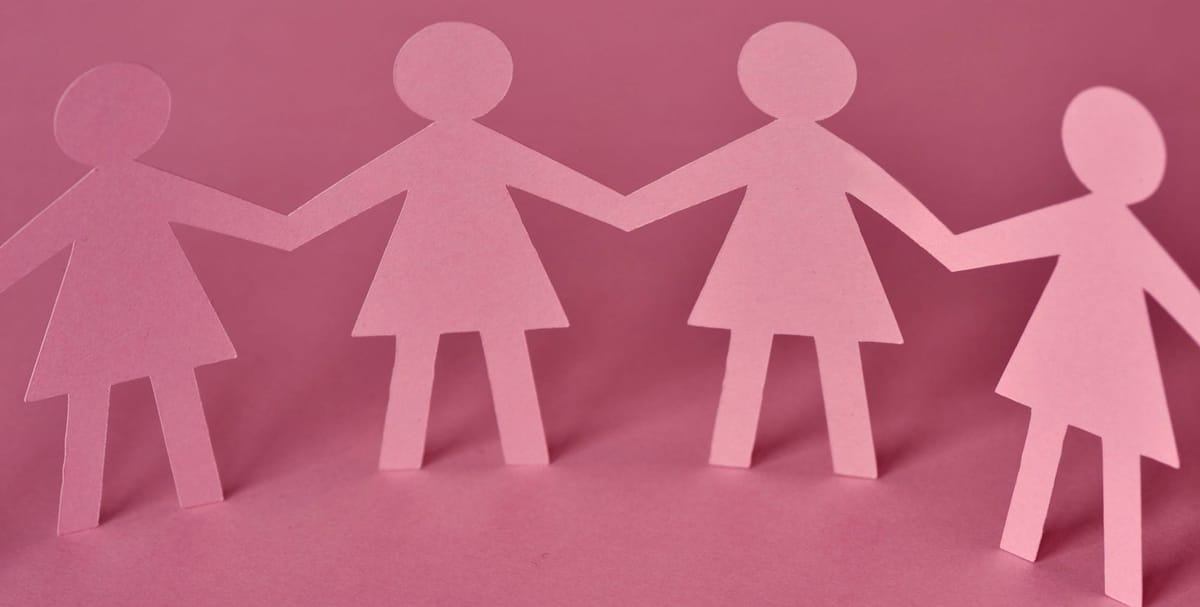Rejecting Girlhood: A Glance at the “Pick Me” Mindset

By ENG 101 student, Ashlynne Goss
When I was eight years old, my dad gifted my older sisters and I an Xbox 360 and the video game Call of Duty: Ghosts for Christmas. A few months later, my dad also bought us the second Black Ops, in which I fell in love with the “Zombies” game mode. Once, I brought it up in front of my uncle, and his response was to look at my mom and say, “What happened to playing with barbie dolls?” Although this statement kind of frustrates me now – I did both – I took pride in it at the time. I played first-person shooters instead of acting out ‘girly’ scenarios with ‘even girlier’ toys.
When I was twelve, I got rid of my barbie dolls. Around this time, I would stray away from the colorful clothes in my closet and only wear black while listening to “emo” music. I would roll my eyes if a girl said ‘like’ too many times in a sentence. I would laugh with my sister’s friends whenever they made an offensive or mean joke, even if I knew how stupid it was at the time.
When I was fourteen – after my parents got divorced and I moved with my mom and sister – I started regretting these decisions. “Why did I get rid of my barbies?” “Why didn’t I listen to pop music anymore?” “Why did I look down on every other girl?” Finally, I came to the conclusion. I only did things considered ‘masculine’ because, according to society, being girly was something to be ashamed of. The more I reflected, the more I realized I wasn’t alone.
I once had a ‘friend’ in elementary school who didn’t like the color pink. When I asked why, she gave me one simple statement in response: “Because it’s girly.” When I went on to middle school, I met a girl who told me during gym class that she hung out with guys instead of girls because girls were “too much drama.” Throughout middle school and my homeschooling years of high school, my sister and I were friends with a certain girl who would constantly get frustrated with my sister for being attractive. Although I thought all of these girls were in the wrong for thinking this way, I too sometimes thought things like this.
I would make fun of my sisters for “trying to be liked,” even going so far as to slut-shame them to others. In truth, I wasn’t mad because they dressed that way, I was mad because they dressed that way and pulled it off. I was mad at them for being able to wear things like that but also mad at myself. Why couldn’t I look good in tight clothes, too?
It wasn’t just clothes that I envied my sisters for – it was looks, too. I was once told by a friend of a friend that my sister was prettier than me. Even then I thought the fact that she said that was insane, but I also thought that way. I thought my sisters were beautiful and I was just the weird younger sister. For the longest time, I would even avoid looking in mirrors. If I were washing my hands in the bathroom sink, I’d space out on the counter to avoid seeing my own reflection.
It wasn’t always about my appearance, either. I was loud and brash. My footfalls were heavy. I had no sense of style. When all the other girls in my class were barely above 100 pounds, I was 180. I wanted to be smaller, but the stress it caused me only made me eat more. I didn’t hate the other girls – I hated myself, which in turn had me projecting my self-hatred onto every other woman or girl I saw.
This wasn’t fully the fault of my sisters or other girls – it was also the fault of the men I was surrounded by. Boys in my class would pick on other girls for their appearance. Men on television would make crude comments about the women they knew. My own father destroyed the confidence of my mom, my sisters, and I.
Over the years, I realized it wasn’t that I wanted to be different – I just wanted my father’s approval. That eventually turned into wanting the approval of any man, whether it would turn out good or bad. This was an awful mindset, as it made me fall in love with any man who showed an interest in me, which eventually led to me constantly hanging out with my 40-year- old, in-a-relationship neighbor.
The Barbie movie came out around the time I was dealing with him, and it helped improve my opinion of myself and other women. As I sat in the theater with my two sisters, all three of us wearing pink (along with many other women in the audience), I watched in awe as America Ferrera gave her iconic speech. As she said, “I'm just so tired of watching myself and every single other woman tie herself into knots so that people will like us,” I could feel something deep inside me swelling, ready to burst. Hell, I could relate. As her character – a mother who wanted to bond with her rebellious tween daughter but continuously failed – explained just how contradictory being a woman was, I could feel the regret for being born a woman slowly disappear. I loved women. I loved being a woman. I loved feminism. I loved my sisters. I loved my mom. I loved myself.
I started fighting back tears as Rhea Perlman’s character – the one and only Ruth Handler – explained why she created Barbie. It was to show her daughter that women could be anything they wanted without being in the shadow of a man. It showed that I could be anything without having to be a man. When the credits started rolling, and “Barbie World” started playing, I –along with several members of the audience – applauded. It was beautiful, and I needed to rush home and hug my mom.
Although that toxic mindset of wanting to put down other women for a guy’s approval will sometimes crawl up and bite me, I do like to believe it’s lessened extremely over the years, and I am so glad. Instead of shying away from every mirror I see, I force myself to look at and admire my appearance, even if I just rolled out of bed. Instead of rolling my eyes at the things my sisters are into, I listen to them gush about it. Instead of thinking a woman should cover herself up more, I think that she looks amazing no matter how ‘skimpy’ her outfit is.
Thanks to the help of the women I was raised by for endlessly supporting me, my sisters for trying to fix my view on myself, and Greta Gerwig for her cinematic masterpiece, I’ve finally gotten as close to loving myself and other women as I’ve ever been. Hopefully someday I’ll be content with just being me.
